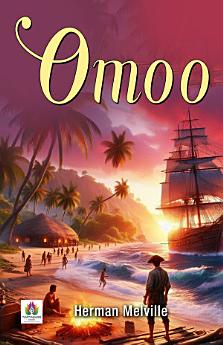Omoo
O ovoj e-knjizi
The story follows the journey of the protagonist, **Tommo**, who escapes from a whaling ship to join a group of natives on the island of Tahiti. It's an exploration of not only the beauty and allure of the tropics but also the tensions and conflicts arising from cultural encounters. Through Tommo's eyes, readers are introduced to the vibrant and often unsettling world of island life, characterized by both its enchantments and its simplicities. Melville paints a vivid picture of the lush landscapes, diverse flora and fauna, and the social structures that define the lives of the natives. His rich and evocative descriptions serve to transport readers to this idyllic yet sometimes treacherous paradise.
**Omoo** presents a distinct critique of Western civilization and its impact on indigenous cultures. Throughout the novel, Melville reflects on the encroaching influence of European and American interests in the Pacific, highlighting the inevitable social and moral degradation that accompanies this process. The narrative showcases the collision of cultures, wherein the Western mindset often undermines the values and traditions of the native population. Tommo’s observations of the natives’ way of life serve as a juxtaposition to the industrialized world he hails from, prompting readers to question the merits of progress and the concept of "civilization."
Melville's character development in **Omoo** offers a deeper understanding of human nature. Tommo’s adventures lead him to encounter various characters, including fellow sailors and islanders, each representing different facets of humanity. Through these interactions, the novel explores themes of freedom, social hierarchy, and moral ambiguity. The complex dynamics between the characters serve to highlight Melville's overarching questions regarding identity and belonging. Tommo, caught between two worlds, embodies the struggle to reconcile a yearning for adventure with the desire for meaningful connections.
Another integral theme in **Omoo** is the concept of freedom and the pursuit of happiness. Tommo's life on the island is initially characterized by a sense of liberation from the constraints of conventional society. He revels in the simplicity and beauty of his surroundings. However, as the narrative progresses, the darker aspects of this freedom are revealed. The island's apparent utopia is disrupted by conflict, deceit, and the realization that freedom is often intertwined with a loss of innocence. This evolution in Tommo’s understanding of freedom mirrors the journey of many who seek to escape from societal confines only to confront new limitations.
Melville's narrative style in **Omoo** blends realism with elements of adventure, humor, and philosophical musings. The text is rich with vivid imagery and a poetic quality that reflects the author's deep appreciation for the natural world. His philosophical reflections, often interspersed within the action, add layers of meaning to the story, encouraging readers to engage with broader existential questions and moral dilemmas. This unique stylistic approach contributes to the enduring relevance of **Omoo**, allowing it to resonate with readers across generations.
In conclusion, **Omoo** stands as a key work in Herman Melville's body of literature, offering a profound exploration of the complexities of human nature, cultural encounters, and the concept of freedom. Through Tommo's journey in the South Sea islands, readers are invited to reflect on the tensions between civilization and the call of the wild. Melville’s rich narrative, imbued with philosophical insight and rich descriptions, not only entertains but also provokes thoughtful consideration of our place in the world. As we traverse Tommo's adventures through paradise and peril, **Omoo** remains a timeless journey into the heart of humanity, revealing the depths of our desires, fears, and aspirations.








